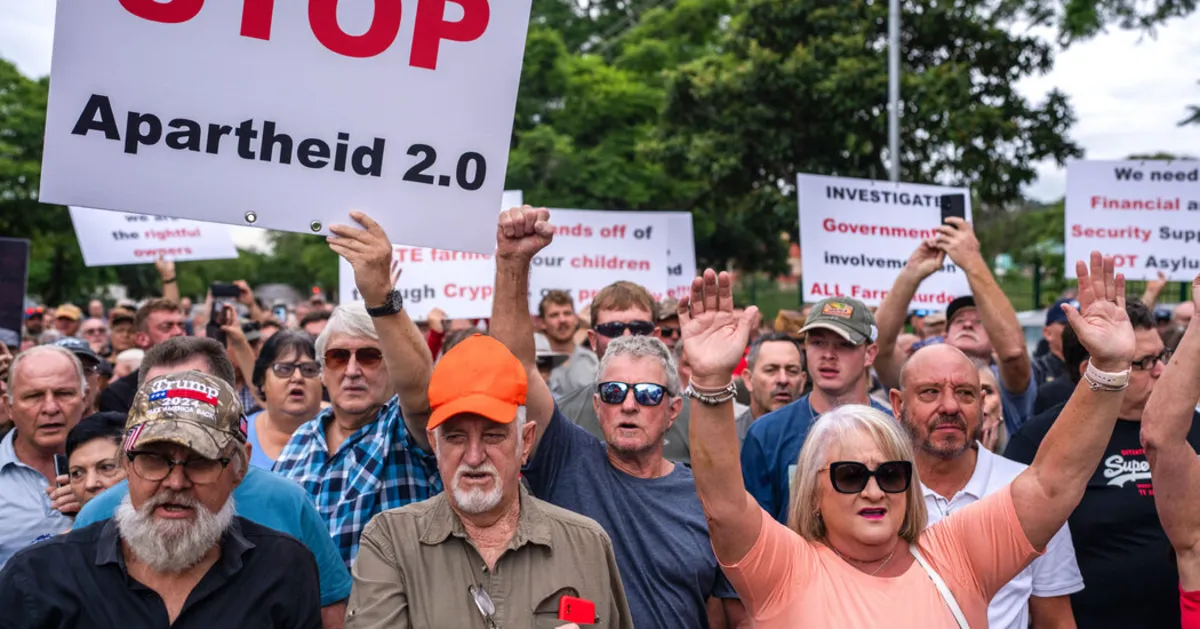
In May 2019, a pivotal meeting took place in the Situation Room involving national security officials and President Trump. During the discussion focused on Iran, President Trump abruptly shifted the conversation to a topic that would later become a notable aspect of his foreign policy: granting asylum and citizenship to white South African farmers. This unexpected pivot highlighted Trump's fascination with a narrative that many viewed as fringe and unfounded.
President Trump had previously suggested that white South African farmers were a persecuted minority facing displacement from their lands. This assertion was based on claims promoted by certain white Afrikaner activists, which Trump seemed to embrace without substantial evidence. According to John R. Bolton, who served as Trump's national security adviser at the time, he regarded Trump's idea as a typical instance of the president being swayed by random inputs from outside sources. Bolton stated, “Some random person tells him something and he’s obsessed with it,” reflecting on Trump's tendency to latch onto controversial and fringe ideas.
Fast forward to today, and Trump's views on white farmers in South Africa are significantly influencing U.S. foreign policy during his second term in office. On a recent Monday, the first group of Afrikaners arrived in Washington, marking a substantial shift in the refugee system. Under the Trump administration, the U.S. has begun prioritizing the asylum claims of white South Africans while simultaneously suspending the refugee program for other vulnerable populations. This includes many Africans who have waited in refugee camps for years and had undergone extensive vetting processes, as well as Afghans who supported U.S. military efforts in their country.
The decision to welcome white South African farmers at the expense of other refugees has sparked significant debate and controversy. Critics argue that this policy not only undermines the traditional values of the U.S. refugee system but also reflects a troubling preference for certain demographics over others, raising questions about the criteria used in these humanitarian decisions. The implications of this shift are far-reaching and have the potential to reshape the landscape of asylum policies in the United States.
As the Trump administration continues to navigate complex international issues, the focus on white South African farmers stands out as a prime example of how personal beliefs and narratives can shape broader policy decisions. The long-term effects of this controversial stance on the U.S. refugee system remain to be seen, but it undeniably signals a significant departure from established practices in humanitarian aid.